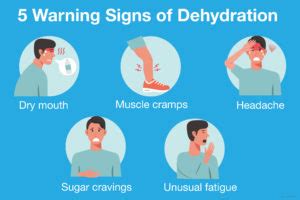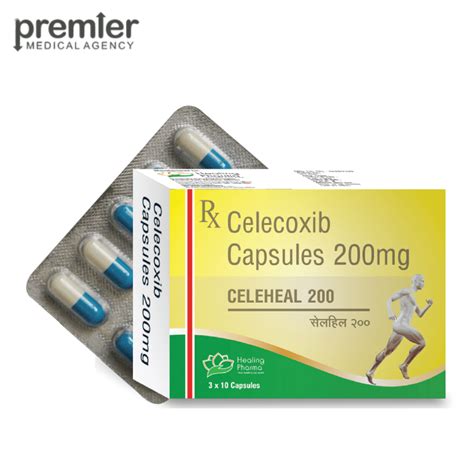Dehydration Symptoms: Know The Warning Signs

The human body is a complex entity that relies heavily on water to function properly. Water makes up approximately 60% of our body weight and is essential for various bodily functions, such as regulating body temperature, transporting nutrients and oxygen to cells, and removing waste products. When we lose more fluids than we take in, our body becomes dehydrated, leading to a range of symptoms that can be mild, moderate, or severe. It’s crucial to recognize the warning signs of dehydration to take prompt action and prevent further complications.
One of the primary causes of dehydration is inadequate fluid intake. When we don’t drink enough water, our body’s water levels drop, causing an imbalance in the delicate balance of fluids and electrolytes. Other factors that can contribute to dehydration include excessive sweating, vomiting, diarrhea, fever, and certain medical conditions, such as diabetes or kidney disease. In some cases, dehydration can be a side effect of medication, such as diuretics, which increase urine production.
Mild Dehydration Symptoms
In the early stages of dehydration, symptoms can be mild and may not seem alarming. However, it’s essential to address these symptoms promptly to prevent dehydration from worsening. Some common mild dehydration symptoms include:
- Dry mouth and throat
- Fatigue or weakness
- Headache
- Dizziness or lightheadedness
- Dark yellow or amber-colored urine
- Decreased urine output
These symptoms can be easily treated by increasing fluid intake and addressing the underlying cause of dehydration. However, if left unchecked, mild dehydration can progress to moderate or severe dehydration, leading to more serious complications.
Moderate Dehydration Symptoms
As dehydration worsens, symptoms become more pronounced and can interfere with daily activities. Moderate dehydration symptoms include:
- Rapid heartbeat
- Low blood pressure
- Sunken eyes
- Decreased skin elasticity
- Decreased urine output or dark-colored urine
- Muscle cramps
- Nausea or vomiting
At this stage, it’s crucial to seek medical attention if symptoms persist or worsen over time. Moderate dehydration can lead to severe dehydration, which can be life-threatening if not treated promptly.
Severe Dehydration Symptoms
Severe dehydration is a medical emergency that requires immediate attention. Symptoms of severe dehydration include:
- Extreme thirst
- Confusion or altered mental state
- Severe headache
- Fever above 103°F (39.4°C)
- Rapid or weak pulse
- Low blood pressure
- Decreased urine output or no urine output
- Seizures or loss of consciousness
If you or someone you know is experiencing severe dehydration symptoms, call emergency services or seek immediate medical attention. Severe dehydration can lead to serious complications, such as organ failure, shock, or even death.
Who Is at Risk?
Dehydration can affect anyone, regardless of age or health status. However, certain individuals are more susceptible to dehydration due to various factors. These include:
- Older adults: Decreased thirst sensation, reduced mobility, and certain medical conditions can increase the risk of dehydration in older adults.
- Young children: Children under the age of 5 are more prone to dehydration due to their small body size and developing kidneys.
- Athletes: Intense physical activity can lead to excessive sweating, increasing the risk of dehydration.
- People with underlying medical conditions: Certain conditions, such as diabetes, kidney disease, or heart disease, can increase the risk of dehydration.
Prevention and Treatment
Preventing dehydration is relatively simple: drink plenty of water and other fluids, and monitor your body’s response to physical activity and environmental conditions. The general recommendation is to drink at least 8-10 cups (64-80 ounces) of water per day. However, this may vary depending on individual needs, climate, and activity level.
If you’re experiencing dehydration symptoms, treatment typically involves increasing fluid intake and addressing the underlying cause. For mild dehydration, drinking water or an oral rehydration solution (ORS) can help replenish lost fluids and electrolytes. In severe cases, hospitalization may be necessary to receive intravenous fluids and close monitoring.
What are the most common causes of dehydration?
+The most common causes of dehydration include inadequate fluid intake, excessive sweating, vomiting, diarrhea, fever, and certain medical conditions, such as diabetes or kidney disease.
How can I prevent dehydration during exercise?
+To prevent dehydration during exercise, drink plenty of water before, during, and after physical activity. Aim to drink 16-20 ounces of water 1-2 hours before exercise and 7-10 ounces every 10-15 minutes during exercise.
What are the symptoms of severe dehydration in children?
+Symptoms of severe dehydration in children include excessive thirst, dark-colored urine, decreased urine output, sunken eyes, low blood pressure, rapid heartbeat, and altered mental state. If you suspect your child is severely dehydrated, seek immediate medical attention.
In conclusion, dehydration is a common condition that can affect anyone, regardless of age or health status. Recognizing the warning signs of dehydration is crucial to take prompt action and prevent further complications. By understanding the causes, symptoms, and treatment options for dehydration, you can take steps to protect yourself and your loved ones from this potentially life-threatening condition. Remember to drink plenty of water, monitor your body’s response to physical activity and environmental conditions, and seek medical attention if you’re experiencing severe dehydration symptoms.



